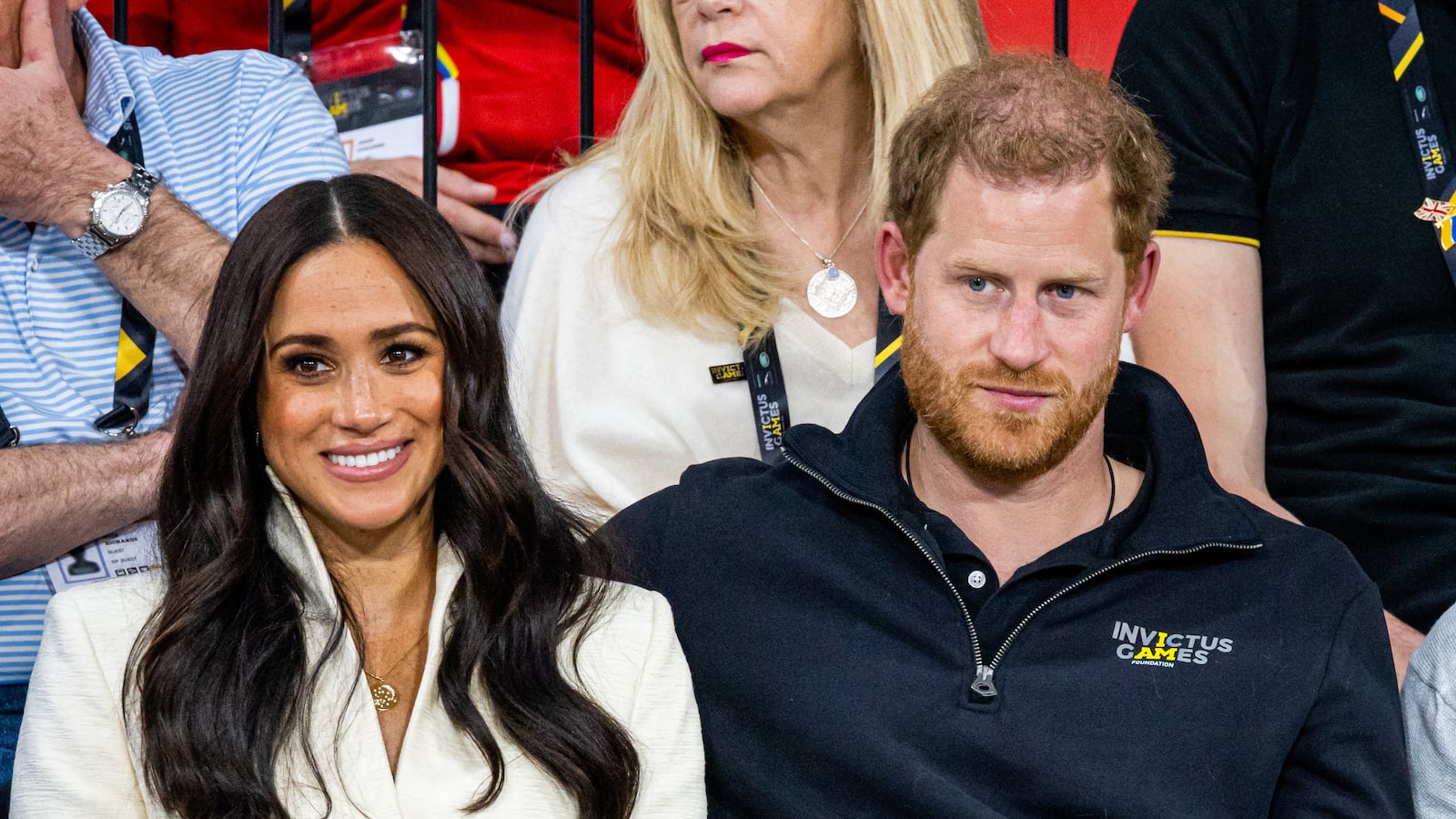Royalist is The Daily Beast’s newsletter for all things royal and royal family. Subscribe here to get it in your inbox every Sunday.
Meghan Markle reacted furiously to the famous Vanity Fair issue headlined “She’s Just Wild about Harry,” in which she confirmed she and Prince Harry were a couple and hinted they would soon announce their engagement. She complained that the article minimized her role as an actor, philanthropist, and activist.
According to excerpts of a new biography of Meghan by British author Tom Bower, Revenge: Meghan, Harry and the War Between the Windsors, Meghan angrily called her publicists, Ken Sunshine and Keyleigh Thomas Morgan, telling them that Buckingham Palace were enraged by the article and that their agency, Sunshine Sachs, should have had comments she made about her and Harry being an item removed. In the interview Meghan said: “We’re a couple. We’re in love.” Shortly after it appeared in the September 2017 issue, Harry and Meghan announced their engagement.

Meghan and Harry depart St. Paul's Cathedral after the Queen Elizabeth II Platinum Jubilee 2022.
Neil Mockford/GettyExcerpts of the new book are being published in The London Times ahead of its publication next week. It has already made waves by alleging that the queen said, “Thank goodness Meghan is not coming,” as she prepared for her husband’s funeral.
Bower reports that Carter flatly told Meghan’s PR team that Meghan, “didn’t get the cover in her own name... but because of who she was likely to marry.”
Bower says that the interviewer for the piece, Sam Kashner, received a phone call from Meghan after the piece appeared, and she told him: “I thought this could have been an actual friendship. I don’t now think that can happen.”
Bower quotes Kashner as saying: “She complained because she wasn’t presented in the way she wanted… She demanded that the media do what she expects. I felt manipulated.”
Bower says that Meghan was particularly angry that the piece neglected to mention an incident in which, as a girl, she wrote to the manufacturers of a dish soap, complaining that their advertising was sexist. Meghan also claimed to have written to Hilary Clinton about the issue and got a reply. Bower claims the story was omitted because “Vanity Fair’s fact checkers had raised questions about its accuracy and, after consulting P&G and advertising historians, had concluded they could not prove the whole story. They could also find no evidence, as Meghan claimed, that she received a reply from Clinton. Unknown to Kashner, Thomas Markle knew Clinton and P&G had not replied to Meghan. The success of ‘campaign’ was fictitious, invented by an adoring father.”
Bower concludes: “Unlike the other young women who married the Windsors it seemed Meghan would not remain silent. In London, Harry’s family and their advisers were subdued. This was not an issue, as some would later assert, about the Palace’s handling or mismanagement of Meghan. Nothing could be done. The besotted prince ignored the warnings that Meghan spelled trouble for the Palace.”






